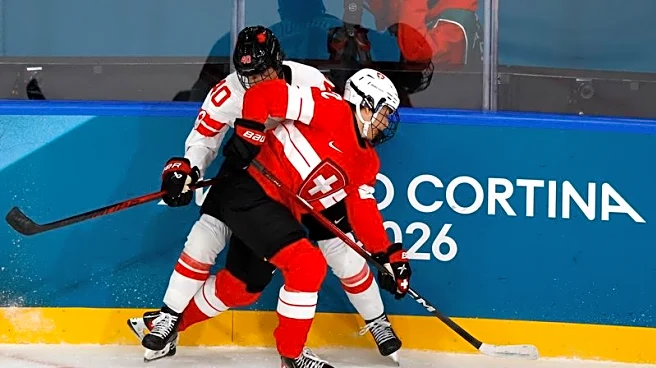What's Happening?
The Tavistock Group, owners of Tottenham Hotspur, have decided to prioritize sporting success, leading to significant changes in the club's leadership. Daniel Levy, who has been the Executive Chairman, will step down from his role, although the shareholding structure between ENIC and Tavistock remains unchanged. This decision is reportedly influenced by the younger generation of the Lewis family, including Joe Lewis's children and grandson-in-law. The move reflects a desire for more consistent success on the pitch, as the Tavistock Group feels the club's performance has not met expectations.
Why It's Important?
This leadership change at Tottenham Hotspur could have substantial implications for the club's future direction and performance. By focusing more on sporting success, the Tavistock Group may implement strategies that enhance the team's competitiveness in the Premier League and other competitions. This shift could affect player recruitment, management decisions, and overall club operations. Stakeholders, including fans and investors, may see this as a positive step towards achieving greater success and stability, potentially increasing the club's value and reputation in the sports industry.
What's Next?
With Daniel Levy stepping down, Tottenham Hotspur may undergo further organizational changes to align with the Tavistock Group's new focus. The club might appoint new leadership or restructure its management team to better support the goal of sporting success. Additionally, there could be changes in player acquisition strategies and investment in training facilities to improve team performance. The reaction from fans and the broader football community will be crucial in determining the success of these changes.
Beyond the Headlines
This development highlights the influence of generational shifts within family-owned businesses, where younger members may drive strategic changes. It also underscores the importance of aligning business operations with performance goals in the sports industry. The decision may set a precedent for other clubs owned by family groups to reassess their priorities and leadership structures.











